A complete list of new university faculty for the 2013-14 academic year
College of Arts and Science
Scott F. Aikin, assistant professor of philosophy
A.B., Washington University in St. Louis, 1994
M.A., University of Montana, 1999
Ph.D., Vanderbilt University, 2006
Aikin works primarily in epistemology, with a focus on the regress problem of justification. His work in ancient philosophy has been to investigate the variety of conceptions of knowing in pre-Socratic philosophy and in Hellenistic philosophy. Aikin’s most recent research deals with political argument and the centrality of understanding and knowledge to democracy.
Ralf Bennartz, professor of earth and environmental sciences
Undergraduate studies in atmospheric sciences, University of Cologne (Germany), 1990
Diploma (equivalent to M.S. degree) in meteorology, University of Hamburg/Max Planck Institute für Meteorologie (Hamburg, Germany), 1994
Ph.D., Free University of Berlin Institute for Space Sciences, 1997
Bennartz has developed a broad and successful research program centered on atmospheric physics, contributing to the fields of atmospheric research including radiative transfer, cloud physics, climate processes, climate models and their physical parameterizations, and data assimilation. Most of his recent research focus has been on cloud-aerosol interactions and their radiative impacts using ground-based and satellite observations.
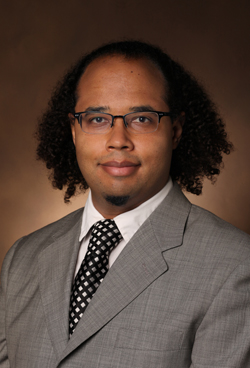
Carwil Robert Bjork-James, assistant professor of anthropology
B.A., Northwestern University, 1996
M.P.P., University of Chicago, 1998
M.Phil., City University of New York, 2010
Ph.D., City University of New York, 2013
Bjork-James’ field research in Bolivia investigates the strategies of grassroots social movements, the dynamics of disruptive protest, and the role of urban space in reproducing and challenging racial and state power. He brings to Vanderbilt expertise in indigeneity, transnational movements, collective rights and anthropological approaches to the state. He worked for several years supporting indigenous communities affected by oil drilling and has taught at Hunter College and New College of California.
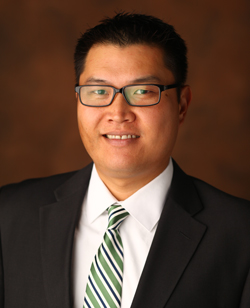
Christopher (Kitt) Carpenter, professor of economics
B.A., Albion College, 1997
Ph.D., University of California–Berkley, 2002
Carpenter’s research has focused primarily on policies and health outcomes related to substance abuse, especially alcohol and tobacco. He also is a pioneer in researching sexual orientation and labor market outcomes. Other work addresses public safety laws (e.g., seatbelts and bike helmets) and obesity. He recently began a project on insurance, mammography and cervical cancer screenings.
Aimi Hamraie, assistant professor of medicine, health and society
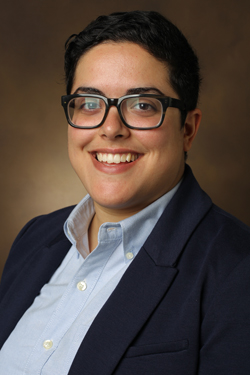
B.A., Emory University, 2007
Ph.D., Emory University, 2013
Hamraie’s research interests include universal design and assistive technology, contemporary feminist theories, epistemologies and methodologies (architecture, design and the body), disability studies, and science and technology studies. Her recent project considers the role of scientific knowledge about bodies in the design of architectural spaces—how space segregates bodies, creates barriers to circulation and dwelling, and how gender and disability are figured by and into spatial milieus.
Eun Jeong Heo, assistant professor of economics
B.A., Seoul National University (South Korea), 2004
M.A., Seoul National University (South Korea), 2006
Ph.D., University of Rochester, 2012
Heo’s interests are in the field of microeconomic theory, in particular the resource allocation problem. In a variety of economic models, she works on a set of criteria that a mechanism has to meet and identifies a class of admissible mechanisms. She also studies people’s behaviors under a certain mechanism and the resulting equilibrium outcomes. Heo has been working on the probabilistic mechanisms in allocating indivisible goods.
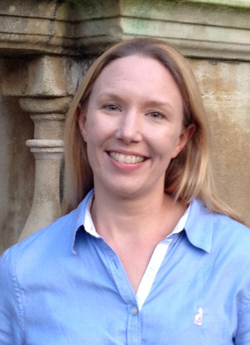
Lauren Parker Jackson, assistant professor of biological sciences
B.S., Vanderbilt University, 2003
Ph.D., MRC Laboratory of Molecular Biology and Trinity College, 2007
Jackson’s studies focus on the mechanistic details of protein trafficking and the sorting of proteins within cells, a major and important field in cell biology for fundamental and medical reasons. She uses biochemical, biophysical and structural biological methods to understand how cells are able to deliver newly synthesized proteins to their proper location within organelles of the cell and how proteins are secreted out of the cell.
Lutz Koepnick, Gertrude Conaway Vanderbilt Chair in German and professor of film studies
M.A., Washington University, 1990
Ph.D., Stanford University, 1994
Koepnick received a joint Ph.D. in 1994 in German studies and humanities from Stanford University and taught for nearly 20 years at Washington University in St. Louis. Koepnick has published widely on film, media theory, visual culture, new media aesthetic and intellectual history from the 19th to the 21st centuries. His current projects include Notes on the Long Take: Toward a Wondrous Spectator, a book investigating the representation of time and duration in international art cinema and video art today.
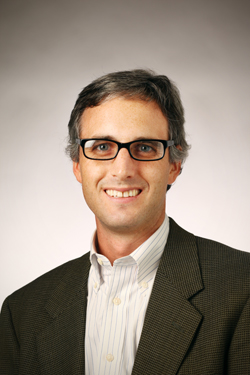
Bryan D. Lowe, assistant professor of religious studies
B.A., Middlebury College, 2003
M.A., Princeton University, 2009
Ph.D., Princeton University, 2012
Lowe’s research centers on East Asian religions with a focus on Buddhism in early Japan (seventh through ninth centuries). He is broadly interested in ritual practice, Buddhist manuscript cultures, and the relationship between religion and the state. His current book project, Ritualized Writing: Sutra Transcription in Early Japan, argues that transcribing scripture was never a simple act of copying a text but a ritualized practice performed by people from diverse social and geographic backgrounds that helped them realize this- and other-worldly ambitions.
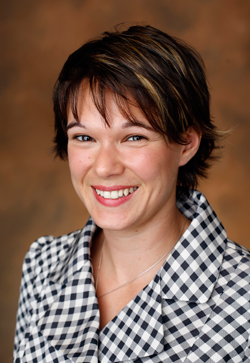
Kristin Michelitch, assistant professor of political science
B.A., Emory University, 2003
Ph.D., New York University, 2013
Michelitch’s work stands at the intersection of politics and development in sub-Saharan Africa, where she investigates the reciprocal relationship between elite and citizen political behavior and the consequences of such “political courtship” on human development. She is most passionate about discovering major catalysts that improve the quality of democratic processes and the pace of socioeconomic progress, paying close attention to inequalities on the basis of gender, ethnicity or partisanship.
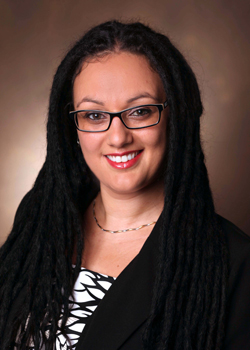
Marzia Milazzo, assistant professor of English
M.A., University of Freiburg (Germany), 2006
Ph.D., University of California–Santa Barbara, 2013
Milazzo’s research is broadly concerned with the relation between the poetics and the politics of racial disavowal and antiracism across national borders and literary traditions. She currently is working on a book that examines the rhetorical contours of colorblindness discourse in a comparative context and its implications for de-colonial imaginaries and antiracist politics in contemporary Afro-Panamanian, Black South African and Chicana/o literatures, as well as for the production of knowledge.
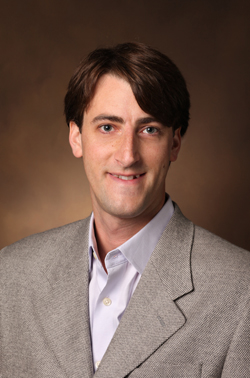
Alejandro Molnar, assistant professor of economics
Licenciatura en Economía, Universidad de Buenos Aires (Argentina), 2004
Graduate program in economics, Universidad de San Andrés (Argentina), 2005
Ph.D., Stanford University, 2013
Molnar’s research is in industrial organization and international trade. His applied work is on airline incentives to congest airports and language barriers to foreign trade. He was awarded the Best Paper by a Young Researcher award at the annual conference of the International Transportation Economics Association.
Lorrie Moore, Gertrude Conaway Vanderbilt Chair in English and professor of English
B.A., St. Lawrence University, 1978
M.F.A., Cornell University, 1982
Moore’s literary career began with short stories published in various magazines and journals. This was followed in 1985 by the publication of Self-Help, her first collection of short stories, which was primarily her master’s thesis at Cornell University. She also is the author of three other collections: Like Life, Birds of America and Bark, forthcoming in March 2014. Moore’s short stories have been reprinted in numerous anthologies, including The Best American Short Stories series, Prize Stories: The O’Henry Awards Series and The Best American Short Stories of the Century, edited by John Updike. She is the author of three novels, most recently A Gate at the Stairs.
Kevin D. Murphy, Andrew W. Mellon Chair in the Humanities and professor of history of art
B.A., Swarthmore College, 1982
M.A., Boston University, 1985
Ph.D., Northwestern University, 1992
Murphy is a specialist in the architecture, architectural theory and material culture of the 19th century in France and the United States. With training in the history of art and in preservation studies, he explores the history of objects and their place in and impact on the physical environment.
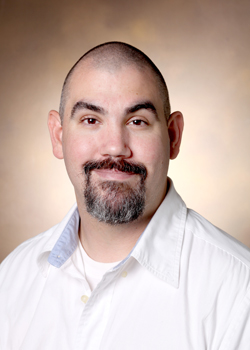
Joshua Murray, assistant professor of sociology
B.S., Portland State University, 2005
M.S., Portland State University, 2007
Ph.D., Stony Brook University, 2012
Murray’s research generally engages with the fields of political sociology, economic sociology, global/transnational sociology and complex organizations. His research tends to utilize methodological approaches such as longitudinal multivariate analysis, social network analysis and comparative historical analysis. His research agenda is motivated by his interests in the intricacies of globalization and the role of organizations in framing human agency. Murray’s current work focuses on the analysis of power structure and class formation through the examination of the political and economic behavior of large business organizations.
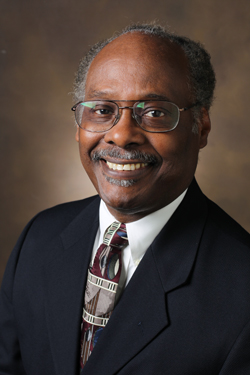
Hector Myers, professor of medicine, health and society
A.A., Canal Zone College (Panama), 1966
B.A., Claremont Men’s College, 1969
M.A., University of California–Los Angeles, 1971
Ph.D., University of California–Los Angeles, 1974
The central theme of Myers’ research is the role psychosocial stress and related factors (coping, social supports, personality characteristics, biological processes, etc.) play in physical and psychological health and well-being in African Americans and other ethnic minority populations. His work has evolved to include developing and testing behavioral interventions with high-risk or impacted minority populations and investigating how these biopsychosocial factors moderate or mediate differences in response to these interventions.
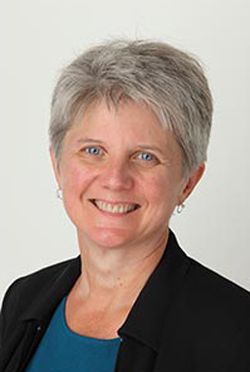
Laurel C. Schneider, professor of religious studies
A.B., Dartmouth College, 1984
M.Div., Harvard Divinity School, 1990
Ph.D., Vanderbilt University, 1997
Schneider is a scholar of modern and postmodern Christian thought, trained in gender theory, sociology of religion and in Native American religious traditions. She is interested in intersectional questions of identity, meaning and divinity as they pertain to contemporary political and social questions of justice and liberation. She also works in Native North American studies, particularly in contemporary scholarship in religious traditions, poetry and philosophy.
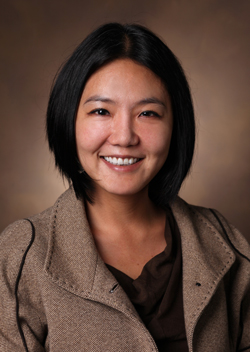
Haerin Shin, assistant professor of English
B.A., Seoul National University (South Korea), 2001
Ph.D., Stanford University, 2013
Shin specializes in 20th- and 21st-century American, Asian American, Japanese and Korean literature, culture and critical theory and other forms of media such as film, animation and graphic narratives. Her research focuses on ontology and technology, cognitive literary theory, psychoanalytic criticism, cyborg theories, the posthuman, speculative fiction and Asian American literature.
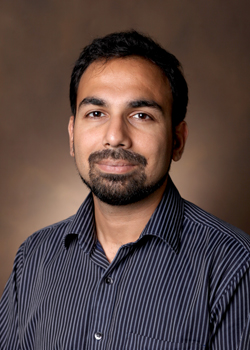
Anand Taneja, assistant professor of religious studies
B.A., Delhi University (India), 2001
M.A., Jarnia Millia Islamia (Delhi, India), 2004
Ph.D., Columbia University, 2013
Taneja’s research and teaching interests include historical and contemporary Islam and interfaith relations in South Asia, the anthropology of religion, everyday life and post-colonial urbanism, and Bombay cinema. His current book project focuses on the ritual practices, dream lives and shared social worlds that Hindu and Muslim communities of contemporary Delhi have built around medieval ruins, and the importance of historical memory for everyday life in the post-colonial city.
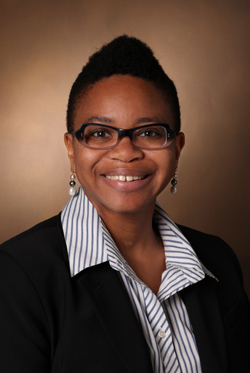
LaTonya Trotter, assistant professor of sociology
B.A., Williams College, 1998
M.P.H., University of Washington, 2006
M.A., Princeton University, 2009
Ph.D., Princeton University, 2013
Trotter is a sociologist who researches medicine, work and how the relationship between the two shapes social life. Her current project, Medical Work/Nursing Work, is a multi-sited ethnography that investigates how on-the-ground negotiations between nurse practitioners and physicians can shift organizational notions of what counts as medical work in outpatient settings.
Divinity School
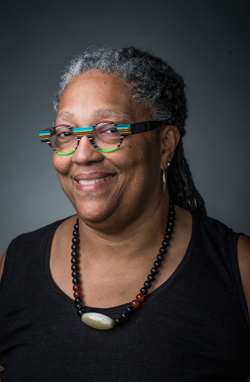
Emilie M. Townes, dean of Vanderbilt Divinity School, E. Rhodes and Leona B. Carpenter Professor, professor of womanist ethics and society
B.A., University of Chicago, 1977
M.A., University of Chicago, 1979
D.Min., University of Chicago, 1982
Ph.D., The Joint Garrett-Evangelical Theological Seminary/Northwestern University Program in Religious and Theological Studies, 1989
Townes’ areas of expertise include Christian ethics and womanist ethics and society. Her other broad areas of teaching and research include critical social theology and cultural theory and studies. Topics of particular interest include health care; cultural production of evil; exploration of the linkages among race, gender, class and other forms of oppression; and development of a network between African American and Afro-Brazilian religious and secular leaders and community-based organizations.
School of Engineering
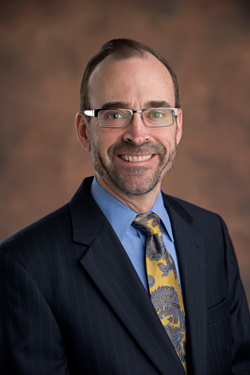
Douglas Adams, Distinguished Professor of Civil and Environmental Engineering, chair of the Department of Civil and Environmental Engineering
B.S., University of Cincinnati, 1994
M.S., Massachusetts Institute of Technology, 1997
Ph.D., University of Cincinnati, 2000
Adams is an internationally recognized expert in the health monitoring of materials, structures and machines. He has developed new theoretical models that explain why structures fail and new sensor systems for experimentally detecting incipient failure. Adams is an academic entrepreneur who favors interdisciplinary research that tackles hard engineering problems with major societal implications in the areas of energy and security. He is the director of the new Laboratory for Systems Integrity and Reliability at Vanderbilt.
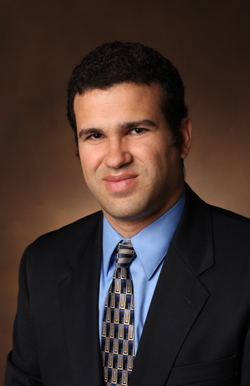
Leon Bellan, assistant professor of mechanical engineering
B.S., Caltech, 2003
M.S., Cornell University, 2007
Ph.D., Cornell University, 2008
Bellan’s research focuses on developing novel 3D microfluidic materials. A major focus of his lab is the production of biomaterials and biodevices—created with nontraditional, scalable fabrication techniques—that replicate and augment the functionality of natural tissue. He is currently developing techniques using sacrificial cotton candy to produce 3D microfluidic networks that may be used as artificial capillary beds in engineered tissue. These same 3D microfluidic systems may also be used to make other smart material systems for structural or energy applications.
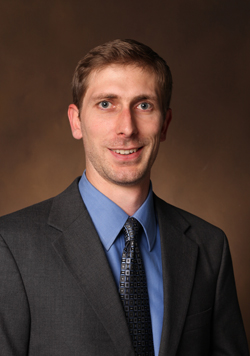
Brett Byram, assistant professor of biomedical engineering
B.E., Vanderbilt University, 2004
Ph.D., Duke University, 2011
Byram’s research interests are focused on novel ultrasound signal and image processing approaches for applications in biology and medicine. He has developed new approaches for ultrasound-based motion estimation, for measures of cardiac tissue stiffness, and for nonlinear ultrasonic beamforming for clutter suppression. His lab at Vanderbilt, the Biomedical Elasticity and Acoustic Measurement Laboratory, will pursue ultrasonic beamforming and elasticity solutions to clinical problems.
Robert Tairas, assistant professor of the practice of computer science
B.Sc., Samford University, 1997
M.Sc., University of Alabama at Birmingham, 2005
Ph.D., University of Alabama at Birmingham, 2010
Tairas’ general research interests include program analysis and understanding, software evolution and maintenance, and empirical software engineering. His specific research topic focuses on the analysis and maintenance of code clones. He is also interested in domain-specific language analysis and model-driven engineering.
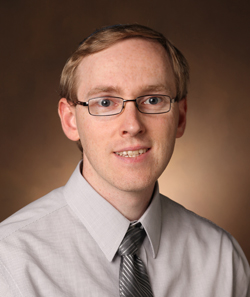
Yevgeniy Vorobeychik, assistant professor of computer science, assistant professor of computer engineering
B.S., Northwestern University, 2002
M.S.E., University of Michigan, 2004
Ph.D., University of Michigan, 2008
Vorobeychik’s research focuses on computational economics, complex systems, machine learning and electronic commerce. His recent work has focused on using game theory, simulations and optimization to address economic and information security issues of national and international significance.
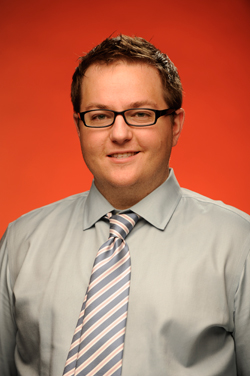
Christopher Jules White, assistant professor of computer science, assistant professor of computer engineering
B.A., Brown University, 2001
M.S., Vanderbilt University, 2006
Ph.D., Vanderbilt University, 2008
White’s research focuses on securing, optimizing and leveraging data from mobile cyber-physical systems. His research spans four areas: mobile security and data collection; high-precision mobile augmented reality; mobile device and supporting cloud infrastructure power and configuration optimization; and applications of mobile cyber-physical systems in multidisciplinary domains, including energy-optimized cloud computing, smart grid systems, health care/manufacturing security, next-generation construction technologies and citizen science.
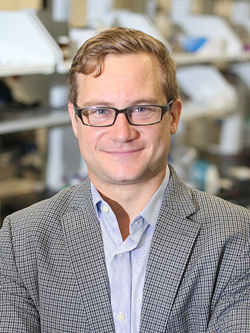
John T. Wilson, assistant professor of chemical and biomolecular engineering
B.S., Oregon State University, 2002
Ph.D., Georgia Institute of Technology, 2009
Wilson’s research interests focus on developing molecularly engineered materials for biomedical applications, with an emphasis on intracellular delivery of biologics, cancer immunotherapy and cell-based therapy for diabetes. His group brings together expertise in advanced polymerization techniques, self-assembling soft materials and drug delivery to: control the intracellular trafficking of peptide, protein and nucleic acid drugs, with an emphasis on delivery of immunomodulatory compounds; design controlled release systems for spatiotemporally regulated drug delivery; and chemically re-engineer cell surfaces with bioactive molecules, polymer thin films and nanoparticles for applications in cancer immunotherapy and diabetes.
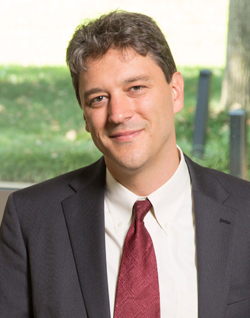
Law School
Christopher Serkin, professor of law
B.A., Yale University, 1993
J.D., University of Michigan, 1999
Serkin teaches and writes about land use and property law. His scholarship addresses local governments, property law, the Taking Clause, land use regulations and eminent domain. His articles have appeared in the Chicago, Columbia, New York University, Notre Dame and Northwestern University law reviews, among others. He is the author of The Law of Property, a Concept and Insights book published in 2012; and a co-editor of a leading casebook, Land Use Controls (4th edition, 2013), with Robert Ellickson, Vicki Been and Roderick Hills.
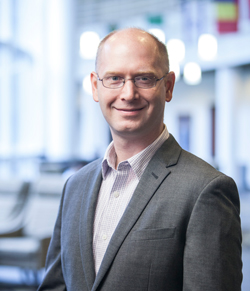
Owen Graduate School of Management
Nicholas G. Crain, assistant professor of management
B.S., Carnegie Mellon University, 2001
M.A., Washington State University, 2007
M.S., University of Texas at Austin, 2009
Ph.D., University of Texas at Austin, 2013
Crain’s research interests lie in private equity, venture capital and corporate finance, in particular the way in which the incentives of private equity and venture capital fund managers determines the allocation of private capital.

Catherine Farmer Lee, assistant professor of management
B.S.E., Princeton University, 2003
M.B.A., University of Chicago, 2007
Ph.D., University of Chicago, 2013 (expected)
Lee’s research interests include issues related to political influence, managerial decisions around financial reporting, regulation and standards setting, managerial incentives and the effect of taxes on business decisions.
Kelly Haws, associate professor of management
B.B.A., Mississippi State University, 1999
M.B.A., Mississippi State University, 2000
Ph.D., University of South Carolina, 2007
Haws’ research interests are related to consumer behavior, with a focus on issues relevant to consumer welfare, specifically with respect to food/health and financial decision making. Her interests include consumer self-control, strategies for improving food consumption, and behavioral pricing.
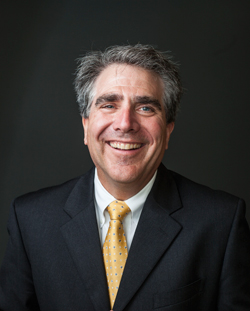
M. Eric Johnson, Ralph Owen Dean of the Owen Graduate School of Management, Bruce D. Henderson Professor of Strategy
B.S., Pennsylvania State University, 1986
M.S., Pennsylvania State University, 1987
Ph.D., Stanford University, 1991
Johnson’s teaching and research focus is on the impact of information technology on the extended enterprise. His latest book, The Economics of Financial and Medical Identity Theft, examines the security failures and economic incentives that drive identity theft. He holds patents on interface design and has testified before Congress on information security.
Michael Stuart, assistant professor of management
B.S., Brigham Young University, 2002
M.A., Brigham Young University, 2002
Ph.D., University of Arkansas, 2013
Stuart’s research interests include financial reporting, executive compensation, capital markets, market efficiency and corporate governance. His research about the relationship between CEO inside debt holdings and the riskiness of firm investment and financial policies appeared in the Journal of Financial Economics in 2012.
Edward VanWesep, associate professor of management
Sc.B., Brown University, 2003
Ph.D., Stanford University, 2007
VanWesep studies labor contracting in theory and practice. He considers how pay should be timed to help workers smooth consumption, how signing bonuses can signal a firm’s belief in its match with a potential hire, and how firms can out-earn their peers by establishing reputations for rewarding top performers with better job titles. Ongoing work concerns the design of teacher contracts and performance measures. His research has been published in the Review of Financial Studies, the Journal of Financial Economics and Management Science, among other outlets.
Peabody College of Education and Human Development
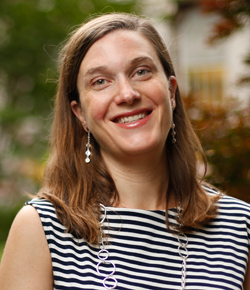
Erin Elizabeth Barton, assistant professor of special education
B.S., University of Illinois at Urbana-Champaign, 1999
M.Ed., DePaul University, 2002
Ph.D., Vanderbilt University, 2007
Barton’s research interests include early intervention practices for young children with or at-risk for developmental disabilities, and professional development of early childhood practitioners. Specifically, she has examined play interventions for young children with disabilities; teacher implementation of intentional, systematic strategies in early childhood settings; caregiver-implemented routine-based intervention with infants and toddlers; and single-subject research methodology.
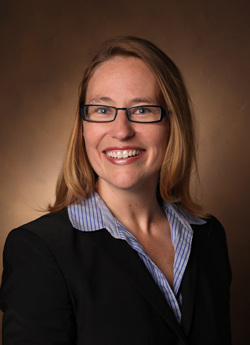
Angela Boatman, assistant professor of public policy and higher education
B.A., University of Minnesota, 2000
M.P.P., M.A., University of Michigan, 2006
Ed.D., Harvard University, 2012
Boatman’s research focuses on the evaluation of policies that aim to improve college student persistence and degree attainment, and the use of statistical methods and large-scale/state-level datasets in answering policy-relevant questions. She is specifically interested in the areas of postsecondary remediation, financial aid, community college student success and postsecondary instruction and course delivery models. She teaches on the economics of higher education, the management of colleges and universities and public policy issues and analysis.
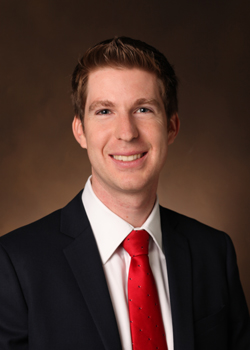
Brent J. Evans, assistant professor of public policy and higher education
B.A., University of Virginia, 2002
M.Ed., Harvard University, 2006
M.A., Stanford University, 2012
Ph.D., Stanford University, 2013
Evans’ work applies economic models of human capital formation and individual decision making to policy-relevant aspects of higher education. He has conducted quasi-experimental and experimental evaluations of college advising, Advanced Placement programs and financial aid targeted at students studying in STEM fields.
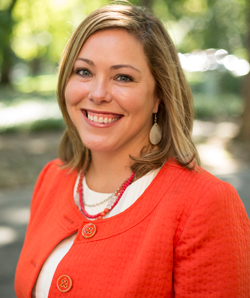
Victoria Knight, assistant professor of special education
B.A., University of California at Santa Cruz, 1997
M.A., University of Northern Colorado at Greeley, 2005
Ph.D., University of North Carolina at Charlotte, 2010
Knight’s research interests include evidence-based practices for individuals with autism spectrum disorder and moderate to severe disabilities, general curriculum access, and technologies for students with autism.
David Laird, assistant professor of the practice in educational leadership and policy
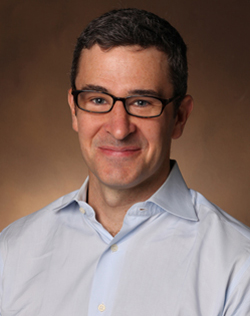
B.A., Vanderbilt University, 1995
M.Ed., Vanderbilt University, 1997
Ed.D., Vanderbilt University, 2002
Laird’s academic interests are related to leveraging district information technology to support engaging classroom instruction. He directs the Principals Leadership Academy of Nashville (PLAN) and the Educational Leadership Learning Exchange (ELLE) program with South China Normal University. He teaches in the doctoral program in educational leadership and policy and in the human and organizational development undergraduate major. Prior to joining the Peabody faculty, he was the director of state and federal evaluation for the New York City Department of Education.
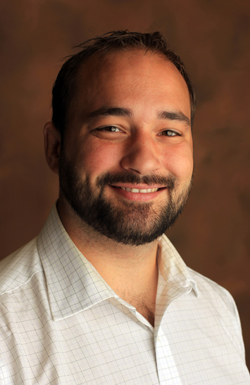
Joseph M. Lambert, assistant professor of the practice of special education
B.A., Brigham Young University, 2007
M.S., Northeastern University, 2009
Ph.D., Utah State University, 2013
Lambert obtained a master’s degree in applied behavior analysis from Northeastern University while simultaneously working as a teacher at the New England Center for Children. It was there that he gained a passion for assessing and treating severe problem behavior. He became a board-certified behavior analyst and began a doctoral program in disability disciplines with an emphasis in applied behavior analysis at Utah State University. He also served as a lead therapist in the school’s Severe Behavior Clinic, where he worked with families, local organizations and public schools to provide behavioral therapy to individuals who engaged in aggression, self-injury and/or property destruction.
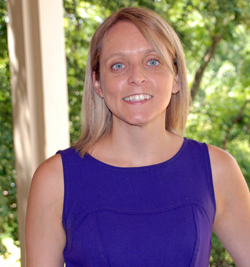
Jennifer Ledford, assistant professor of special education
B.A., Emory University, 2003
M.Ed., University of Georgia, 2006
Ph.D., Vanderbilt University, 2012
Ledford’s major area of research investigates issues of instruction and social interactions for young children with autism and developmental disabilities. She has developed a steady record of research publications and peer-reviewed presentations related to her research as well as the research she has conducted cooperatively with others. She is the recipient of an IEA early career award to conduct a series of studies related to small group instruction for young children with autism.
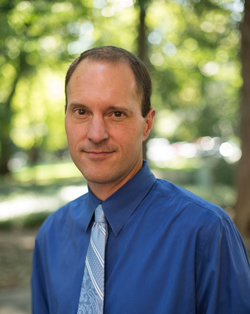
Christopher J. Lemons, assistant professor of special education
B.A., University of Texas at Austin, 1996
B.S., University of Texas at Austin, 1999
M.A., University of Texas at Austin, 2000
Ph.D., Vanderbilt University, 2008
Lemons’ research interests include reading interventions for students with Down syndrome and other intellectual disabilities and students nonresponsive to evidence-based reading instruction; progress monitoring; and assessment. He recently received the Early Career Publication Award from the Council for Exceptional Children’s Division of Research for an article published in Exceptional Children.

Blair Lloyd, assistant professor of special education
B.S., Davidson College, 2006
M.S., Vanderbilt University, 2011
Ph.D., Vanderbilt University, 2013
Lloyd’s areas of specialization include behavioral disorders and developmental disabilities, applied behavior analysis, single-subject design, and observational methods. Her current research focuses on evaluating a range of assessment methods used to describe and explain environmental influences on problem behavior in classroom settings, and using assessment results to develop and refine classroom-based behavioral interventions.
Sarah V. Suiter, assistant professor of the practice of human and organizational development
B.S., Furman University, 2001
M.S., Vanderbilt University, 2006
Ph.D., Duke University Medical Center, 2010
Suiter’s work engages community-based responses to promoting human health and well-being. She has conducted community-based research with health and human development organizations around the globe, including PRODEPINE in Ecuador; Casa de Galilea in Buenos Aires, Argentina; Magdalene House in Nashville, Tenn.; Southlight in Raleigh, N.C.; and two federally funded System of Care sites in central Tennessee.